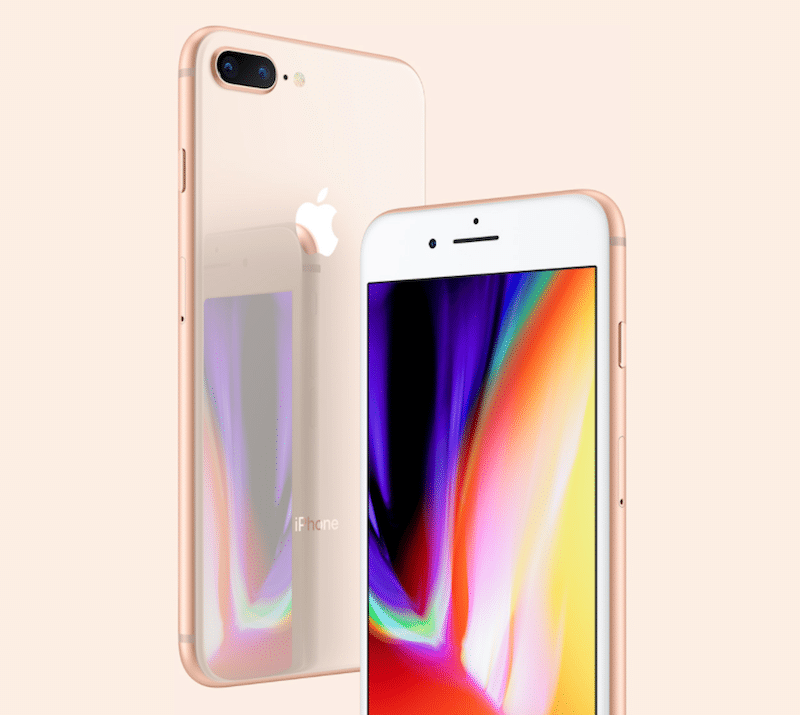
When buying a new iPhone, it’s usually the sticker price that we’re the most concerned with. While it might not seem like an important distinction, picking the wrong storage tier can lead to frustration couple of months down the line. And because iPhones don’t have expandable storage, you’re left to deal with storage issues on you own.
The new iPhone 8 and iPhone 8 Plus have new storage capacities and prices. And because they’re seemingly so close to each other, it can be difficult to choose between the 64GB and the 256GB tier. This is an important decision that you should spend some time thinking through (just like which color to choose).
Read more: The 8 Best New Features of Apple’s iPhone 8 and iPhone 8 Plus
Capacity and Pricing
This time around, there are only two storage tiers for the iPhone 8 and iPhone 8 Plus – 64GB and 256GB and they’re both $50 more expensive than iPhone 7. And here’s what they cost out of the box and if you go for Apple’s Upgrade program.
- iPhone 8 (64GB): $699 ($34.50/month)
- iPhone 8 (256GB): $849 (($40.75/month)
- iPhone 8 Plus (64GB): $799 ($39.50/month)
- iPhone 8 Plus (256GB): $949 ($45.50/month)
General Storage Guidelines

If you’re the kind of person who likes to keep their entire music library offline on their iPhones, or you download a lot of movies or apps, it’s best if you don’t skimp on your storage. If you like to keep your entire photo library available offline on the device, it’s best if you go for the largest possible storage capacity.
On the other hand, if you use music streaming services, stream movies and TV shows exclusively and you back up all photos and videos to iCloud Photo Library, you might just get away with the lowest storage tier. But even then, you should be prepared when you hit the wall. You’ll need to delete apps, and back up photos actively to make sure there’s enough storage space available.
Read more: iPhone X vs iPhone 8/iPhone 8 Plus: Which Should You Buy?
Who Should Buy the 64GB Model?

For the first time in iPhone history, the iPhone 8 starts with 64GB storage tier. The side effect is that Apple has increased the price of the iPhone 8 by $50.
Depending on your usage, 64GB can either be plenty of storage or just enough. Unlike previous generations, it’s not going to be comically small (like the 16GB of 32GB versions).
Even if you download 5 GB of music, keep a couple of movies for offline viewing, and your photo library, you should still be fine. If you plan on taking 4K videos, 64GB won’t be enough for you.
Plus, you can use the new features in iOS 11 to help you make sure that you’re never running out of storage. iOS 11 will automatically offload apps, help you remove iMessage attachments, backup photos automatically and delete them from your device when you’re running out of storage space.
If you only have $699 to spend on a new iPhone, it’s possible to get by with 64GB storage space on a new iPhone. And this time around, you won’t have to try as hard.
Who Should Buy the 256GB Model?
If you’re the kind of person who never wants to worry about the storage space, and you’re willing to pay a $150 premium for that privilege, get the 256GB version.
Even if you download HD movies, multiple games, your entire music collection and your photo library, you still might not fill up the entire storage. Safe to say that you won’t be spending any time panicking that your phone might run out of storage, just before shooting a 4K 60 fps video.
We usually don’t recommend the 256GB tier for everyone. 128GB has been the sweet spot for the past couple of years.
But Apple has changed the strategy this time. So you can either get just enough storage space with the 64GB version or you’ll have way too much space with the 256GB version.
It all comes down to how you use your iPhone. Take a look at how much storage space you’re using right now before making the decision. It also might not be worth paying $150 extra (the iPhone 8 Plus (256GB) costs $949 which is just $50 less than the iPhone X). That money could go towards buying AirPods or AppleCare+.
Which Capacity Will You Buy?
What is your iPhone storage usage like? Which storage tier did you end up picking? And why? Share your thought process with us in the comments below.